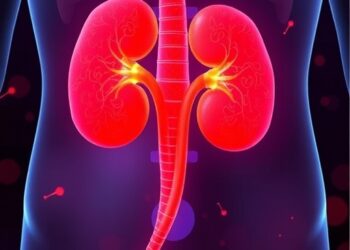An analysis of reviews of translational biomedical research reveals that just 5% of therapies tested in animals reach regulatory approval for human use. The study, an umbrella review, published June 13th in the open access journal PLOS Biology, summarizes other systematic reviews and provides high level evidence that while the rate of translation to human studies is 50%, there is steep drop off before final approval. The authors argue that improved robustness and generalizability of experimental approaches could help increase the chances of translation and final approval.
An analysis of reviews of translational biomedical research reveals that just 5% of therapies tested in animals reach regulatory approval for human use. The study, an umbrella review, published June 13th in the open access journal PLOS Biology, summarizes other systematic reviews and provides high level evidence that while the rate of translation to human studies is 50%, there is steep drop off before final approval. The authors argue that improved robustness and generalizability of experimental approaches could help increase the chances of translation and final approval.
Animal studies are used in basic research to provide insight into aspects of human diseases. They have paved the way for certain therapeutic innovations, although there are several steps that follow before a treatment can be approved for human use. In debates about the ethics of animal research, clinical translation is one of the main justifications of such work, yet there is little evidence on how many studies make it through each step and are finally approved.
Benjamin Ineichen of the University of Zurich, Switzerland, and colleagues meta-analyzed 122 systematic reviews that evaluated the translation of therapies from animals to humans. They assessed how many advanced to any human study, to a randomized controlled trial and to regulatory approval as well as looking at consistency between animal and human study results. They found that of 367 therapeutic interventions tested in 54 human diseases, 50% progressed from human to animal studies, 40% to randomized controlled trials and only 5% to regulatory approval. There was a high rate — 86% — of alignment between animal and human studies, and the average time periods for reaching the different stages were five years to any human study, seven years to randomized controlled trials and 10 years to regulatory approval.
Although the number of studies crossing the first stage is higher than previous evidence has suggested, the low rate of final approval suggests there could be deficiencies to address in the design of both animal and early clinical studies.
The authors add, “To improve animal-to-human translation, we advocate for enhanced study design robustness of animal and human research which will not only benefit experimental animals but also affected patients.”
#####
In your coverage, please use this URL to provide access to the freely available paper in PLOS Biology:
Citation: Ineichen BV, Furrer E, Grüninger SL, Zürrer WE, Macleod MR (2024) Analysis of animal-to-human translation shows that only 5% of animal-tested therapeutic interventions obtain regulatory approval for human applications. PLoS Biol 22(6): e3002667.
Author Countries: Switzerland, United Kingdom
Funding: Swiss National Science Foundation (No. 407940_206504, to BVI) UZH Digital Entrepreneur Fellowship (No number, to BVI). UFAW (Universities Federation for Animal Welfare, to BVI). The sponsors had no role in the design and conduct of the study; collection, management, analysis, and interpretation of the data; preparation, review, or approval of the manuscript; and decision to submit the manuscript for publication.
Journal
PLoS Biology
Method of Research
Meta-analysis
Subject of Research
Not applicable
COI Statement
Competing interests: The authors have declared that no competing interests exist.




